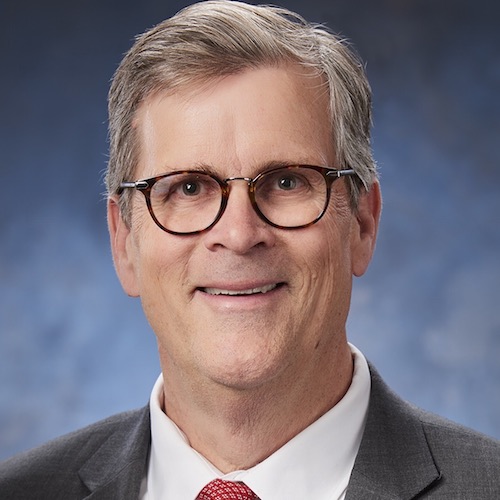8 minutes
Consider these tidbits of advice to achieve remarkably consistent leadership and service.
After 34 years at the executive level in lending for two different credit unions that are now multi-billion in size, my leadership style is what I refer to “leadership by tidbits.” Admittedly, I am not a big reader of business or leadership books; I’m more likely to pick up a golf or car magazine in my spare time. Much of my leadership style has been formed from past bosses. I try to copy different aspects of these past influencers in my life and career and avoid a few “that’s not who I want to be” aspects from a past manager who frankly wasn’t a great leader. What I haven’t picked up from past bosses, I pick up via other tidbits—little thoughts on leadership I see on an almost daily basis. I suppose I’m always learning and refining my style.
One of the latest tidbits that spoke to me came from a podcast by retired NFL player and current ESPN analyst, Ryan Clark. One of Clark’s guests was Mike Tomlin, his coach during his time with the Pittsburgh Steelers. During ESPN’s Get Up morning show, Clark and the other analysts were talking about the recent events concerning Miami Dolphin quarterback Tua Tagovailoa. Tagovailoa, even though many fans and much of the medical community were sure he suffered a concussion the previous weekend, was allowed to play in the Dolphins’ next game on a Thursday night, just four days later. The result was a scary event, as Tagovailoa experienced seizure-like symptoms on the field after being tackled.
The show then cut to a video of Ryan Clark’s podcast conversation with Tomlin (the specific discussion can be watched starting at the 48:15 mark) about Clark’s desire to play in a game a decade ago in Denver. There are three noteworthy details: One, Ryan Clark has sickle cell anemia. Two, after a prior 2007 game in Denver, Clark became so sick he lost his gall bladder, spleen and 30 pounds. Frankly, he could have also lost his life. Finally, to convince Tomlin to let him play in Denver, Clark assembled a medical team to prepare him for another game at the mile-high altitude.
Five minutes into what was supposed to be a 30-minute presentation by his team of specialists, Tomlin shut down the sales pitch. Clark was not going to play. Tomlin repeated on the podcast what he told Clark that day a decade ago: “If you were my kid, we wouldn’t be having this conversation.” As a leader, he explained he had to care more about Ryan Clark than he cared about himself. This, according to Tomlin, was leadership. His other quote is a tidbit worth more than its weight in leadership gold: “How can you expect unique results without unique relationships?”
Have a Unique Interest Level
This concept of unique relationships speaks to me, because I truly believe we should care more about our employees than ourselves. Seeing that I may be within view of the end of my career, I’ve been saying around the office that “it’s not about me” anymore, and it hasn’t been about me for a long time. A big part of my recent job satisfaction, especially with the multiple challenges of leading during and after the pandemic, comes from being part of the development of our people.
The CEO during my time at Fairwinds Credit Union in the 1990s, Ed Baranowski, seemed to have a high level of personal satisfaction from seeing his people progress. From time to time he’d talk about people he hired in the past who had risen to different senior positions. Of note, he had two previous employees, both VPs, who eventually became CEOs at other credit unions. He also spoke highly of two loan officers he had hired at his prior credit union that had been in the finance company industry (as had I) who both became vice presidents of lending in the movement. When Ed spoke about these people, there was a higher level of excitement than normal in his voice. Thirty years ago, his pride and excitement started to mold who I was as a leader.
Make and Discuss Unique Plans
I like movie lines because they’re easy to remember—and they can often be a source of leadership tidbits! There’s an obscure one from a Billy Crystal movie from the 90s, City Slickers, that I really like, as it applies to how I look at employee development and leadership. The line goes something like this: “There are no such things as accidents; there are only plans other people have for you they don’t tell you about.” You shouldn’t have plans or a vision for your employees that you don’t tell them about. To enjoy unique relationships, you should avoid this kind of accident of omission.
You must be able to paint a picture of what’s possible for the employee—another way of saying what you see for their future. Certainly, there are caveats in doing so. First, you need to balance being realistic and optimistic. Employees are often like athletes. The sports world is full of stories about athletes in every sport who achieved early success in high school, college or the minor leagues, only to suffer from “peaking early.” There are also as many stories about the “late bloomer” who also managed to outwork other, more talented people around them. I’m a fan of under-promising and over-delivering, so I avoid making promises I can’t keep.
Secondly, your unique plans might be more like drawing a map. What destination is possible, and what moves should the employee consider in reaching the destination? Giving someone a destination without reasonable directions may cause some wrong turns. This often comes into play when you have an employee wanting to advance, and they apply for positions that might be too far off their potential path. Very early in my career, during my finance company days, I applied for a job in the home office, which was off the normal path for aspiring assistant branch managers. Thankfully, I had a district manager who called me wanting to know “What in the h*** are you doing?” He went into detail saying no one ever left the home office, implying the job would take me nowhere. As it turned out, I think he intervened and killed my interview, only to intervene again and promote me to branch manager less than a month later. Ray had a better view of my path than I did.
Foster Unique Competition
As a leader, hopefully you will have multiple team members that are pursuing career growth and may or may not have similar destinations. I like to think of credit unions as being friendly competitors; yes, we compete, but most of the time our competition is dictated by mutual respect and friendship. When it comes to multiple candidates for advancement, a leader needs to foster a similar type of competition, regardless of their potential destination. Performance is rarely achieved in a vacuum, and candidates with talent and aspirations must have a high level of friendly competition between them. I like to think of this kind of competition as one that they can only lose. No one can win it. They must show the ability to work with others and make each other better. Trying to win by making someone look bad won’t win any contest that I sponsor!
Make Unique Sacrifices
Do you really care about your career-aspiring employees? If so, you should be willing to lose them if they can better reach their destination elsewhere. Over the last five years, I’ve sat down with several of my people to have ongoing conversations about my unique plans for them. I knew they could potentially get to where they wanted to go elsewhere. I’ve said to anyone who will listen that my credit union is blessed to have eight chief lending officers. I was the chief lending officer. I oversee the current chief lending officer. We also have six people that, in my opinion, could be the chief lending officer right now at a billion-dollar credit union.
When you have that much talent, you should acknowledge that you may not be able to keep everyone. Like a professional sports team, you may have to let people go elsewhere due to a logjam at a position. I’ve told people that I want to get them to where they want to go, that I’ll totally support them, and that means being willing to let them go elsewhere. That said, I’m not going down without a fight! I’ll do what I can to keep them engaged, learning, and perhaps just as importantly, find ways to carve out time for them to do what they really enjoy about lending. As people climb the ladder, there are always aspects of their previous role that they miss. While advancing means a whole new set of responsibilities, if you also want people to be passionate about what they do, it helps to have a few things that can help keep the passion burning.
Get Your Unique Results
As Mike Tomlin knows, he doesn’t play one down of football in the game. He can plan out the game strategy and be adept at making tactical moves in a closely contested game, yet he needs his players performing at their best to win in the NFL. He’s known for remarkably consistent and unique results as a head coach; he’s never had a losing season and his players love and respect him. As credit unions serving our members, it’s imperative we are remarkably consistent in our service, and achieve unique results for our members by providing the best possible value. What a perfect scenario for requiring your leaders to develop unique relationships.
Bill Vogeney is the chief revenue officer and self-professed lending geek at $9.6 billion Ent Credit Union, Colorado Springs.






